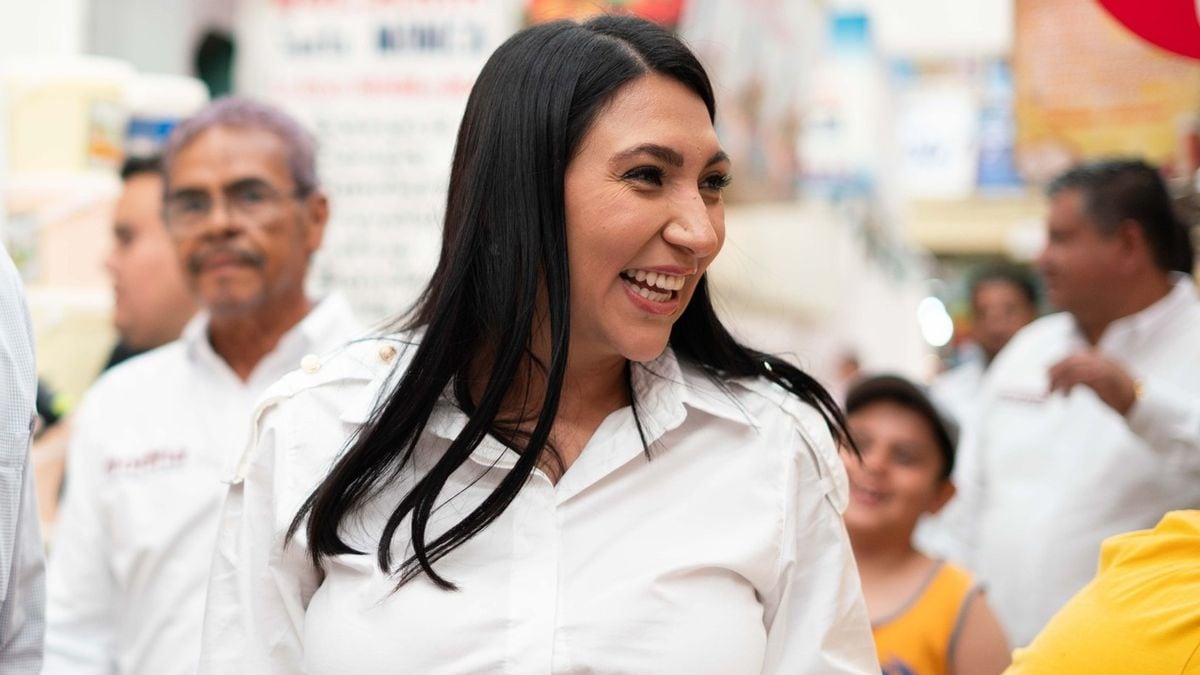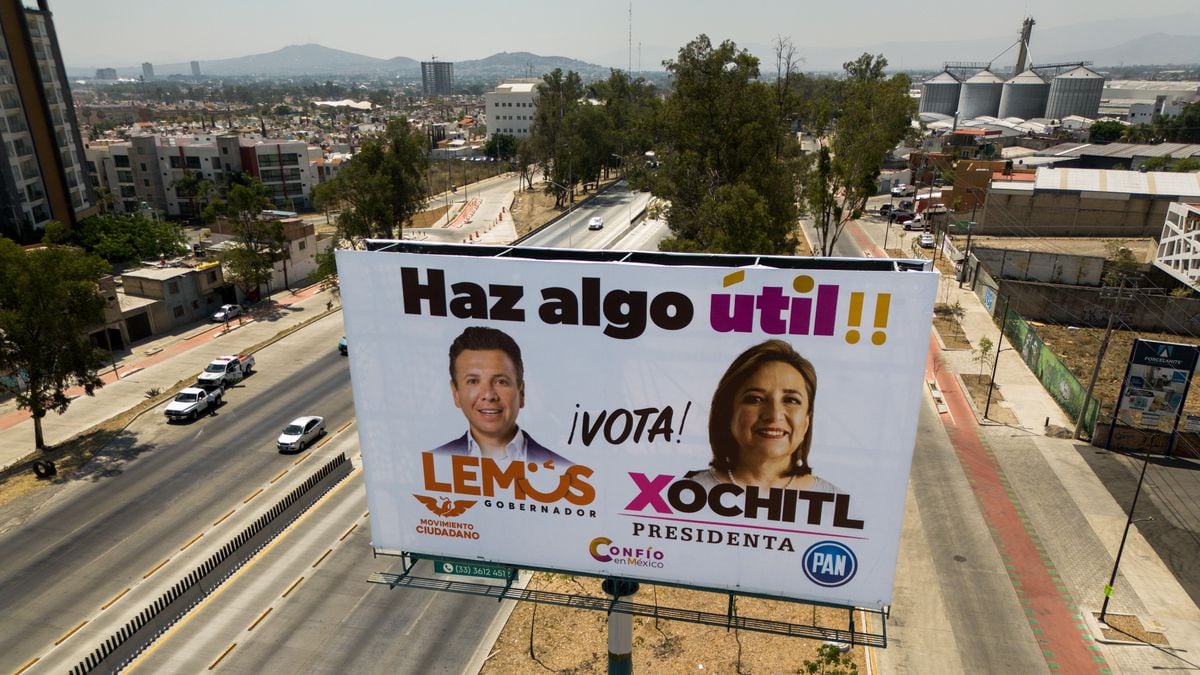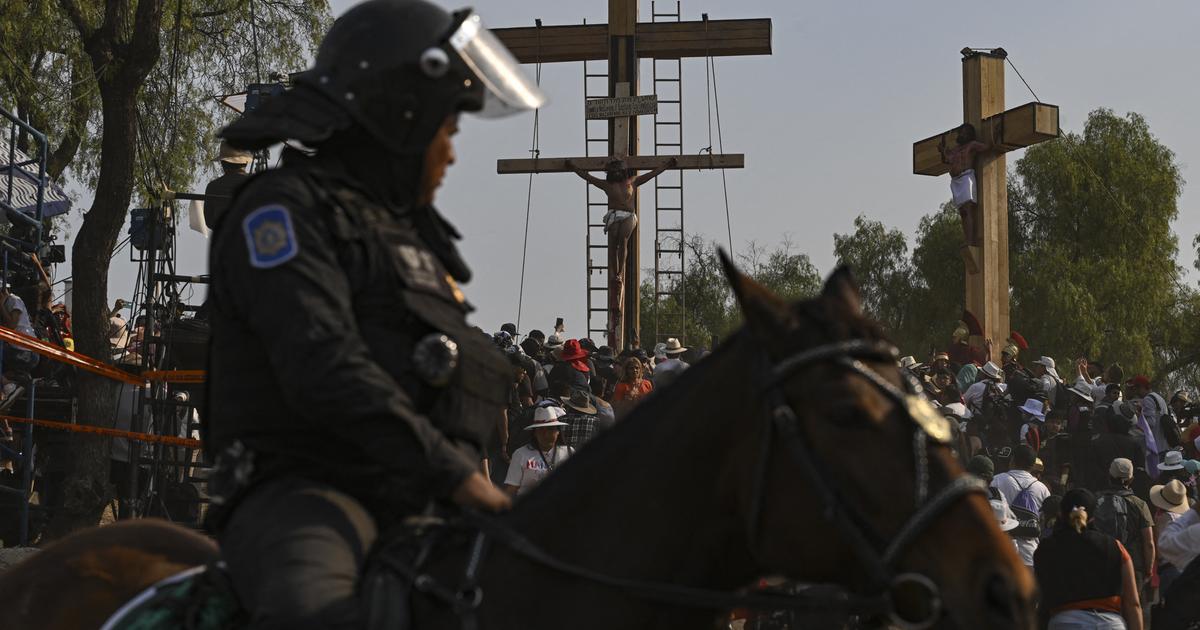"Los Pinos can wait." This is what Marcelo Ebrard reflected in 2011, when he decided to step aside and give free rein to Andrés Manuel López Obrador, so that the leader would become the presidential candidate of the PRD and could go to the great duel a year later as the standard-bearer of a coalition of leftist parties united against the PRI. López Obrador did not win the Presidency of the Republic that time. And Ebrard was left empty-handed and unprotected before a vendetta of the Government of Enrique Peña Nieto. "Los Pinos can wait," he had thought. It is an anecdote that the foreign minister himself tells in his autobiographical book El camino de México, which he has published this year as a showcase and campaign resource. Los Pinos was the Government Palace, the enclosure where the President of the Republic lived and dispatched. López Obrador moved the residence of power to the National Palace in 2018, when he finally became ruler of Mexico. Ebrard returned to the public stage as López Obrador's foreign secretary, and has now entered fully into the race for presidential succession, accelerating thoroughly, dragging the other aspirants at his pace, showing that, this time, waiting is not in his plans.
The chancellor has declared that he will leave the Ministry of Foreign Affairs next Monday and with this he has imposed on the other corcholatas an inescapable obligation: to resign from their public positions to campaign for the survey with which Morena will define its presidential candidacy. Ebrard shakes up the internal contest and scores a bit thanks to a pass from López Obrador, who on Monday night said, for the ears of all the aspirants, the governors of Morena and the leader of the party, Mario Delgado, that the corcholatas should leave their positions in the Government before the poll. It was a demand that Ebrard raised with Morena for months and that until now had been ignored. The president's intervention not only gives breathing space and momentum to Ebrard, second in most measures of electoral preferences, but also shakes up the strategy of Mexico City Mayor Claudia Sheinbaum, who has consistently maintained that she will leave office until after the internal poll, and only if she wins.
Delgado tried in the morning to downplay the words of López Obrador, who in fact has assumed the role of head of the party, in a clear effort to lead the internal process and avoid at all costs a fracture. In the afternoon, Delgado only had to accept that, after the announcement of the chancellor, the rest of Corcholatas also had to separate from their position, so that there is an "even floor" for all. Two candidates positioned themselves immediately: Ricardo Monreal, leader of the Morena caucus in the Senate, said he will release his post within the period established by the call for the internal selection process. Adán Augusto López, Secretary of the Interior, said he will adapt his rhythm to "the times of the Lord."
But the times had already been dictated from Earth, specifically from the restaurant where López Obrador gathered the leaders of his party to make his dictation. Ebrard saw in the president's message a good sign. He felt encouraged. "I am very happy, because I see very clearly that the proposals we made since December [...] will be reflected in the unitary proposal that we will have on Sunday", Mass day and day of the National Council of Morena. The foreign minister appeared with jubilation and surrounded by his collaborators from the Foreign Ministry, deputies and senators. "Smile, comrades, comrades, everything is going to be fine," he said at the end, an evocation of López Obrador's 2006 campaign, when the leader was first trying to become president. In that campaign the obradoristas proclaimed: "Smile, we are going to win."
2011 was not the first time Ebrard sacrificed a government aspiration for López Obrador. In 2000, a young Marcelo tried to be head of government and ran for the Democratic Center Party (PCD), which he founded together with his mentor, Manuel Camacho Solís, a pragmatic PRI member who led the peace negotiations between the government and the EZLN and managed to avoid a clearly disproportionate confrontation. The candidate decided to decline in favor of López Obrador, who was running for the same capital office, for the PRD. Ebrard wrote in his book that his intention was to avoid at all costs a split of the left-wing vote that would favor the PAN, the strong conservative party of the time.
In 2006 his opportunity came: López Obrador lost the presidential election, but Ebrard, who was also active in the PRD, did manage to take over the Government of Mexico City (2006-2012). Shortly before finishing his term in the capital – he had an overwhelming approval of between 60% and 70% – he challenged the leader and challenged him for the presidential candidacy (López Obrador was trying for the second time), but lost in the internal selection polls by a minimal margin. Although the idea of calling for a "second round" of the poll crossed his mind, he stepped aside again, with the same argument of eleven years ago: "The divided left would only go to the precipice."
Ebrard had to go into exile from Mexico in 2015, persecuted by the government of Peña Nieto. He returned to the country and made his public appearance until February 2018, when López Obrador, in his third presidential campaign, appointed him coordinator of his campaign in the northern states of the country. He has completed four and a half years as Secretary of Foreign Affairs of the Obradorista Administration, in a management in which the foreign minister has come to the step of several diplomatic crises, the most serious in mid-2019, when the then president of the United States, Donald Trump, threatened to impose a tariff on Mexican products if the Government did not take drastic measures to stop the flow of migrants from Central and South America. At the end of that year, Ebrard also managed the mission to rescue Evo Morales after the coup d'état in Bolivia, and in 2021, the Foreign Ministry undertook an unprecedented lawsuit against US arms companies for their possible responsibility in the crisis of violence in Mexico.
When he was head of the capital's government, Ebrard earned the nickname of carnal – brother – of López Obrador. They called him El carnal Marcelo. In his message on Tuesday, almost three decades after the two met, the foreign minister thanked the president for "his support, his trust, his generosity, his guidance and his closeness all these years." And as if he saw the goal at the end of the road but also beyond it, he closed: "And so we will continue the years to come."
Subscribe hereto the newsletter of EL PAÍS Mexico and receive all the informative keys of the news of this country





/cloudfront-eu-central-1.images.arcpublishing.com/prisa/WT5BBUFX4FCD5HOYEGBOT2NYFY.jpg)


/cloudfront-eu-central-1.images.arcpublishing.com/prisa/QXGSWDRR2NBJRHI2EUJI3CJEXY.jpg)
